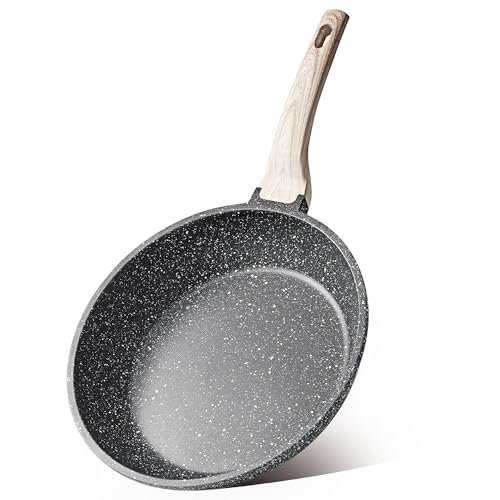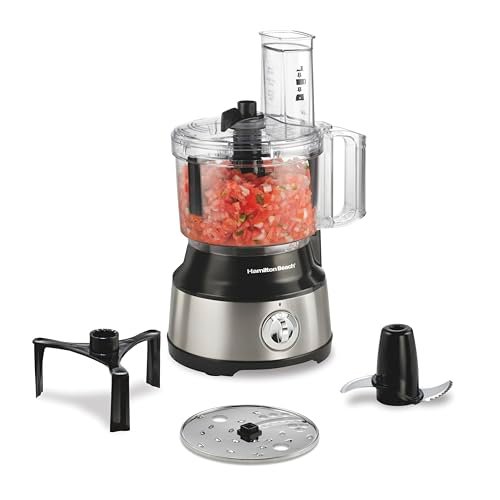Which Drain Cleaner Works Best for Kitchen Sink: Ultimate Guide
Is your kitchen sink clogging up again? You’re not alone.
A blocked kitchen sink can turn your cooking paradise into a frustrating nightmare. But don’t worry, finding the right drain cleaner can save you time, money, and stress. You might wonder, “Which drain cleaner works best for my kitchen sink?
” With so many options on the market, it can be overwhelming to choose the right one. Imagine a solution that clears the toughest clogs effortlessly, leaving your sink fresh and free-flowing. Curious to discover the best drain cleaner that can restore peace to your kitchen? Keep reading to uncover the top choices that could transform your daily routine.
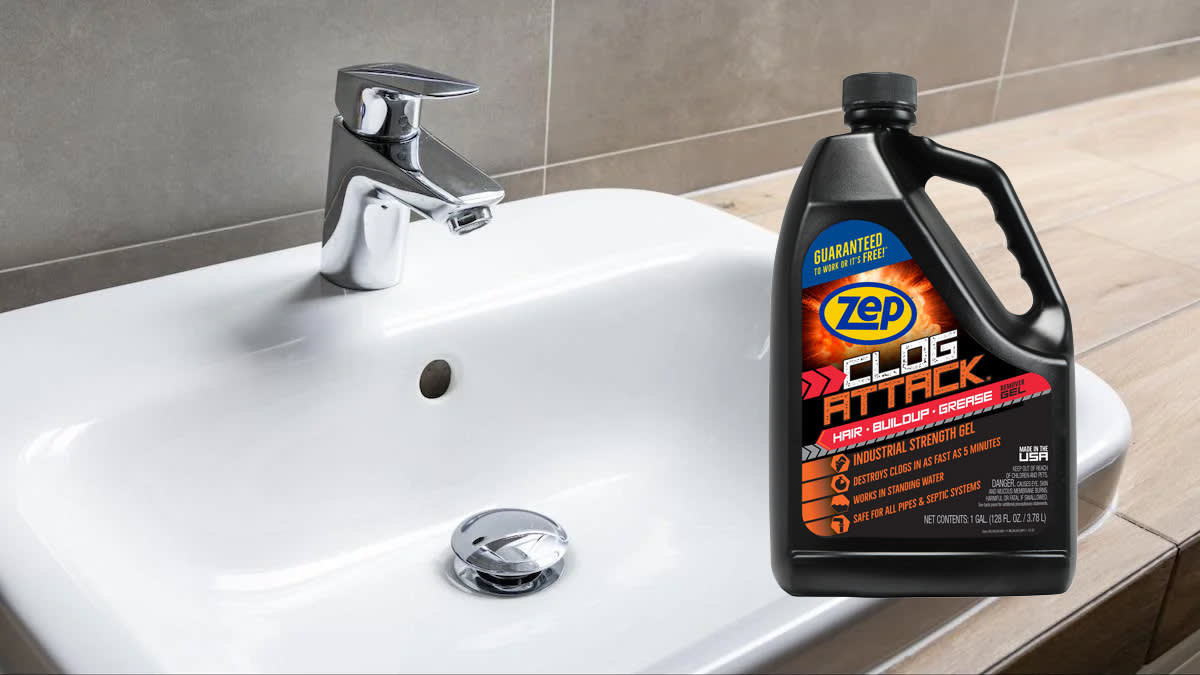
Credit: ky-pd.com
Types Of Drain Cleaners
Exploring options for a clean kitchen sink? Different drain cleaners cater to various needs. Enzyme-based cleaners work gently, breaking down organic material. Chemical cleaners, like those with sodium hydroxide, offer quick results. For eco-friendly choices, try baking soda and vinegar.
Each type has unique benefits for maintaining a clog-free sink.
Understanding the types of drain cleaners helps in choosing the best one. Each type serves a different purpose and has unique benefits. Here, we explore three main categories. These are chemical, enzyme-based, and natural alternatives. Chemical drain cleaners are powerful. They break down tough clogs quickly. These cleaners use strong chemicals like lye or sulfuric acid. They dissolve hair, grease, and food particles. This makes them effective for kitchen sinks. Always handle them with care. They can be harmful to skin and eyes. Follow the instructions on the label closely. Make sure the area is well-ventilated. Some brands offer specific formulas for kitchen sinks. Enzyme-based solutions are eco-friendly options. They use natural enzymes to eat away at organic matter. This makes them safer for both pipes and the environment. They work more slowly than chemical cleaners. But they are gentler on your plumbing. These are ideal for regular maintenance. Enzyme cleaners help prevent clogs before they form. They are safe for septic systems too. Perfect for households seeking greener solutions. Natural alternatives use common household items. Baking soda and vinegar are popular choices. They create a fizzy reaction that can clear minor clogs. Salt, hot water, and lemon juice also help. These methods are non-toxic and safe for all pipes. They are gentle and cost-effective. Perfect for routine cleaning and maintenance. Natural options are great if you want to avoid harsh chemicals.Factors To Consider
Choosing the right drain cleaner for your kitchen sink is essential. Different factors can influence your decision. Each factor ensures the cleaner works effectively without damage. Let’s explore these factors further.
Sink Material
The material of your sink is crucial. Stainless steel sinks might tolerate harsher chemicals. Porcelain sinks may not. Ensure the cleaner matches your sink type. This prevents any possible damage.
Pipe Compatibility
Check the material of your pipes. Metal pipes can corrode with harsh chemicals. PVC pipes may warp with excessive heat. Always match the cleaner to your pipe material. This helps maintain a long-lasting plumbing system.
Environmental Impact
Consider the cleaner’s environmental footprint. Some cleaners contain harmful chemicals. These can impact water sources and wildlife. Opt for biodegradable or eco-friendly options. They are safer and more sustainable choices.
Chemical Drain Cleaners
Choosing the right chemical drain cleaner for a kitchen sink involves considering effectiveness and safety. Liquid-Plumr and Drano offer powerful solutions, quickly dissolving clogs. For eco-friendly options, try Bio-Clean or Green Gobbler, which use natural enzymes to break down waste.
Always follow instructions to prevent damage to pipes.
Chemical drain cleaners offer a quick solution for clogged kitchen sinks. These powerful products dissolve stubborn debris, grease, and food particles. Many households rely on them to keep their sinks flowing smoothly. Let’s explore the best brands, usage tips, and safety precautions.Best Brands
Several brands stand out in the chemical drain cleaner market. Drano is a popular choice for its effectiveness. It breaks down tough clogs quickly. Liquid-Plumr is another reliable brand. It works efficiently on grease and hair clogs. Zep is known for its industrial strength. Ideal for severe blockages. These brands consistently receive positive feedback from users.Usage Tips
Using chemical drain cleaners requires careful handling. Start by reading the instructions on the bottle. Pour the recommended amount directly into the sink. Allow it to sit for the time indicated. Avoid using hot water immediately after. This ensures the cleaner works effectively. Regular use can prevent future clogs. Monthly application often keeps drains clear.Safety Precautions
Safety is crucial when using chemical drain cleaners. Wear gloves and eye protection. These products contain corrosive substances. Keep children and pets away during use. Ensure the room is ventilated. Open windows or use fans to disperse fumes. Store cleaners in a cool, dry place. Follow disposal instructions carefully to protect the environment.Enzyme-based Solutions
Enzyme-based drain cleaners tackle kitchen sink clogs effectively. These solutions break down organic waste, ensuring clear pipes. They offer a safe, eco-friendly method for maintaining smooth drainage without harsh chemicals.
Clogged kitchen sinks can turn a delightful cooking experience into a frustrating chore. Enzyme-based solutions offer a natural and effective way to clear drains without harsh chemicals. These cleaners use enzymes to break down organic materials like food scraps and grease, making them an eco-friendly option for your home.Top Products
When choosing an enzyme-based drain cleaner, consider the top products that have proven results. Green Gobbler Drain Clog Dissolver is a popular choice, known for its powerful formula that targets tough clogs. Bio-Clean is another highly recommended product, praised for its ability to maintain clean pipes with regular use. You might also want to try Roebic K-67, which is often highlighted for its effectiveness in tackling stubborn grease buildups. These products are not only effective but also safe for your plumbing system.Benefits And Limitations
Enzyme-based cleaners are gentle on your pipes and safe for septic systems. They focus on natural breakdown processes, reducing the risk of damage that chemical cleaners might cause. The absence of harsh chemicals means they are safer for your health and the environment. However, they may not work as quickly as chemical cleaners. You might need to wait several hours, or even overnight, for significant results. While they are great for maintenance, extremely stubborn clogs might require a different approach.Application Process
Using enzyme-based cleaners is straightforward and hassle-free. Start by reading the product instructions carefully to ensure proper usage. Most products require you to pour the solution directly into the drain, followed by a period of waiting for the enzymes to work. Consider applying the cleaner before bed, allowing it to work overnight for maximum effect. Regular maintenance can help prevent future clogs, so incorporating this into your cleaning routine could be a wise choice. Have you ever tried enzyme-based solutions for your kitchen sink? They might just be the gentler, effective alternative you’ve been looking for.Natural Alternatives
Natural alternatives for cleaning kitchen sink drains are gaining popularity. They are eco-friendly and safe for your home. Many people prefer them to chemical cleaners. These alternatives use simple ingredients found in most kitchens.
Homemade Recipes
Baking soda and vinegar is a classic combination. Pour half a cup of baking soda down the drain. Follow it with a cup of vinegar. Let it fizz for 15 minutes. Then flush with boiling water. Another recipe uses salt and baking soda. Mix equal parts of both. Pour it down the drain. Let it sit overnight. Flush with hot water in the morning.
Effectiveness And Drawbacks
Natural alternatives can be effective for minor clogs. They break down grease and food particles. But they might not work on tough clogs. Natural cleaners are less harsh than chemicals. They are safe for pipes. However, they may require more time to work. Frequent use is necessary for best results.
Cost Considerations
Natural drain cleaners are often cheaper. Ingredients like baking soda and vinegar are affordable. They are usually already in your kitchen. This saves money on buying special products. Natural options reduce the need for professional plumbing services. This can lead to long-term savings.
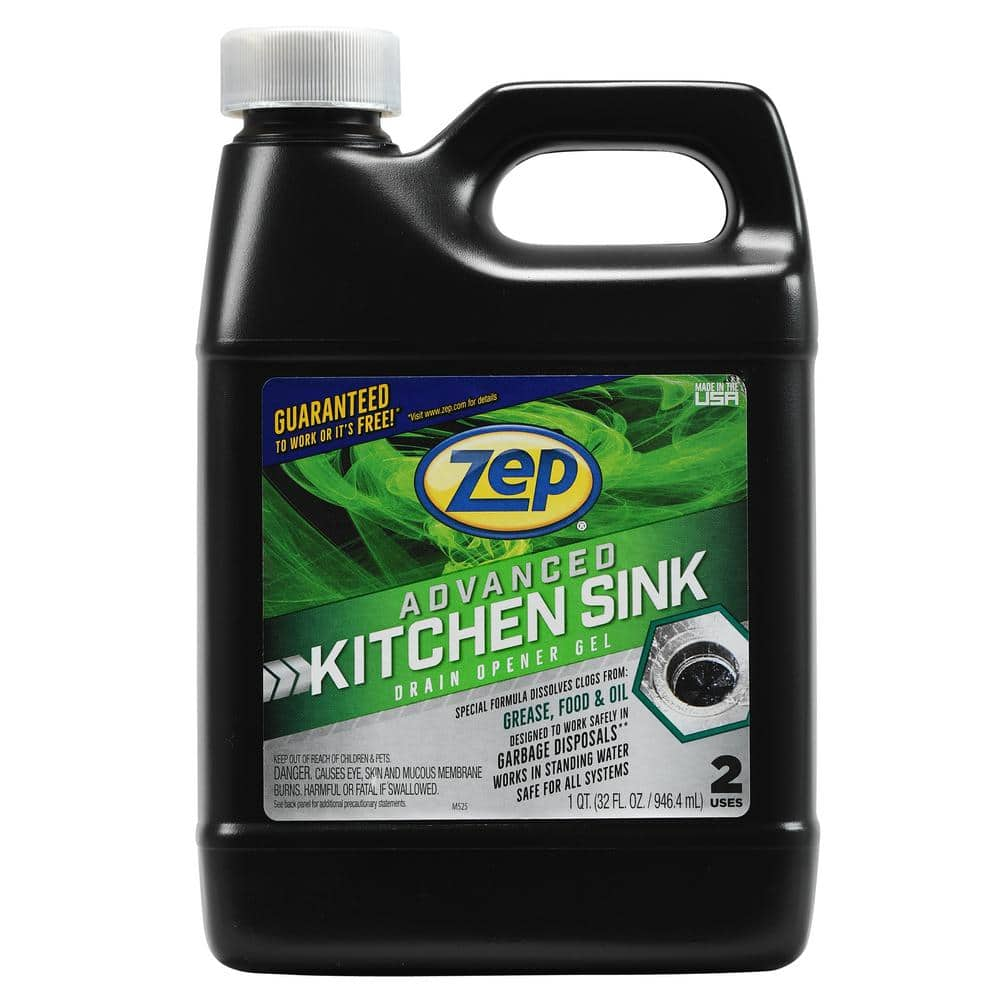
Credit: www.homedepot.com
Diy Drain Cleaning
Cleaning a kitchen sink drain yourself is cost-effective and rewarding. Understanding how to tackle clogs can save time and money. Simple tools and steps make the process manageable for everyone. Let’s explore how to clean your drain efficiently.
Tools Required
- Plunger
- Baking soda
- Vinegar
- Boiling water
- Old toothbrush
Gather these tools before starting the cleaning. They are commonly found in most homes. Having them ready will make the process smooth.
Step-by-step Guide
- Remove any visible debris from the sink.
- Use a plunger to loosen the clog. Push down firmly, then pull up.
- Pour a cup of baking soda down the drain.
- Add a cup of vinegar. Let it fizz for 5 minutes.
- Flush the drain with boiling water. This removes remaining residue.
- Scrub the drain opening with an old toothbrush.
Follow these steps carefully for effective results. Each step helps in breaking down and removing the clog.
Preventive Measures
- Avoid pouring grease down the drain.
- Use a drain strainer to catch food particles.
- Regularly flush the drain with hot water.
- Monthly use of baking soda and vinegar can prevent buildup.
Implementing these measures helps maintain a clean drain. Consistent care prevents frequent clogs, ensuring smooth drainage.
Professional Vs Diy Solutions
Choosing between professional and DIY solutions for clearing a kitchen sink drain can be tricky. Many of us have faced that moment when water just won’t go down the sink. Do you grab the plunger or call in the experts? Both approaches have their perks and pitfalls, and understanding these can help you make the best decision for your situation.
Cost Analysis
DIY solutions often come with a lower price tag. A bottle of drain cleaner or a homemade mix of baking soda and vinegar is cheap and readily available. You might already have these items in your pantry.
Professional services, on the other hand, can be costly. Hiring a plumber could set you back anywhere from $100 to $300. While this might seem steep, it’s important to consider the value of time saved and the assurance of a job well done.
Have you ever tried a DIY fix only to end up calling a plumber anyway? It happens more often than you’d think. Weighing these costs can help you avoid unnecessary expenses.
Effectiveness Comparison
DIY methods can work well for minor clogs. A combination of baking soda and vinegar can break down small blockages effectively. It’s like a science experiment that fizzes away grime.
For stubborn or recurring issues, professional solutions tend to be more reliable. Plumbers use specialized tools and techniques that can address deeper problems. They can identify issues that you might not even know exist.
Have you ever poured drain cleaner down the sink, only for it to do nothing? It can be frustrating. Professionals bring expertise and equipment that DIY solutions just can’t match.
When To Call A Professional
Consider calling a professional if your DIY attempts fail or if you suspect a serious issue. Recurring clogs, bad odors, or strange noises can indicate deeper problems that need expert attention.
If you’ve tried multiple DIY methods with no success, it might be time to call in the cavalry. A plumber can diagnose the problem and provide a permanent solution.
Have you ever found yourself in a cycle of temporary fixes? Breaking free with professional help can save you future headaches. Do you really want to spend another Saturday wrestling with the sink?
Ultimately, the choice between professional and DIY solutions depends on your situation and comfort level. Knowing when to tackle the problem yourself and when to call for help can make all the difference in maintaining a happy, functional kitchen.
Maintaining A Clog-free Sink
A clear kitchen sink depends on the right drain cleaner. Enzyme-based cleaners are gentle and eco-friendly. Chemical cleaners act fast on tough clogs. Choose wisely for a smooth-running sink.
Maintaining a clean and efficient kitchen sink is crucial. A clog-free sink ensures smooth kitchen operations. It also prevents unpleasant odors. Regular maintenance keeps your sink in top shape. Understanding potential issues helps in avoiding costly repairs.Regular Maintenance Tips
Regular upkeep can prevent clogs. Clean your sink weekly with hot water. This helps dissolve grease. Use a mild detergent. It removes food particles. Avoid pouring oil down the drain. Oil solidifies and blocks pipes. Place a strainer over the drain. It catches food scraps and hair.Signs Of Potential Clogs
Recognizing early signs helps. Water draining slowly is a warning. Strange gurgling noises indicate trapped air. Foul smells suggest decaying food. If you notice these, act quickly. Delaying can worsen the problem.Long-term Solutions
Consider long-term measures. Use enzyme-based cleaners monthly. They break down organic matter. Install a garbage disposal unit. It grinds food waste efficiently. Seek professional plumbing help annually. An expert can spot hidden issues.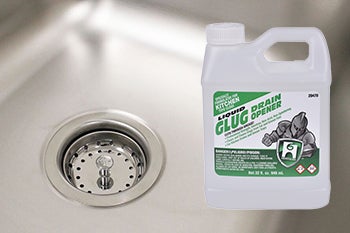
Credit: www.oatey.com
Frequently Asked Questions
What Is The Best Thing To Use To Unclog A Kitchen Sink?
Use baking soda and vinegar to unclog a kitchen sink effectively. Pour half a cup of baking soda, followed by half a cup of vinegar. Let it sit for 15 minutes, then flush with boiling water. This method is eco-friendly and safe for pipes.
Why Do Plumbers Say To Not Use Drano?
Plumbers advise against using Drano because it can damage pipes, especially older ones. It also poses health risks due to its toxic chemicals. Frequent use can lead to costly repairs and plumbing issues. Opt for safer alternatives or consult a professional for persistent clogs.
What Is The Best Drain Unblocker For Kitchen Drains?
Drano Max Gel is a top choice for kitchen drains. It’s effective on clogs and safe for pipes. Bio-Clean is another option, using natural enzymes to clear drains. Both are widely recommended and trusted. Always follow product instructions for best results.
What Do Plumbers Recommend To Unclog Drains?
Plumbers often recommend using a plunger or a drain snake for unclogging drains. Baking soda and vinegar can also help. Avoid harsh chemicals, as they may damage pipes. Regular maintenance with enzyme-based cleaners can prevent clogs. Always consult a professional for persistent issues.
What Is The Best Drain Cleaner For Kitchen Sinks?
A liquid gel drain cleaner is often effective. It breaks down grease and food particles quickly.
Conclusion
Choosing the right drain cleaner is crucial for your kitchen sink. Each cleaner has its strengths. Some work fast, others are gentler. Consider your sink’s material and blockage type. Eco-friendly options are great for the environment. Chemical cleaners can be more powerful but need caution.
Always follow instructions for safety. Regular maintenance helps prevent clogs. A little care saves time and money. Happy cleaning!


